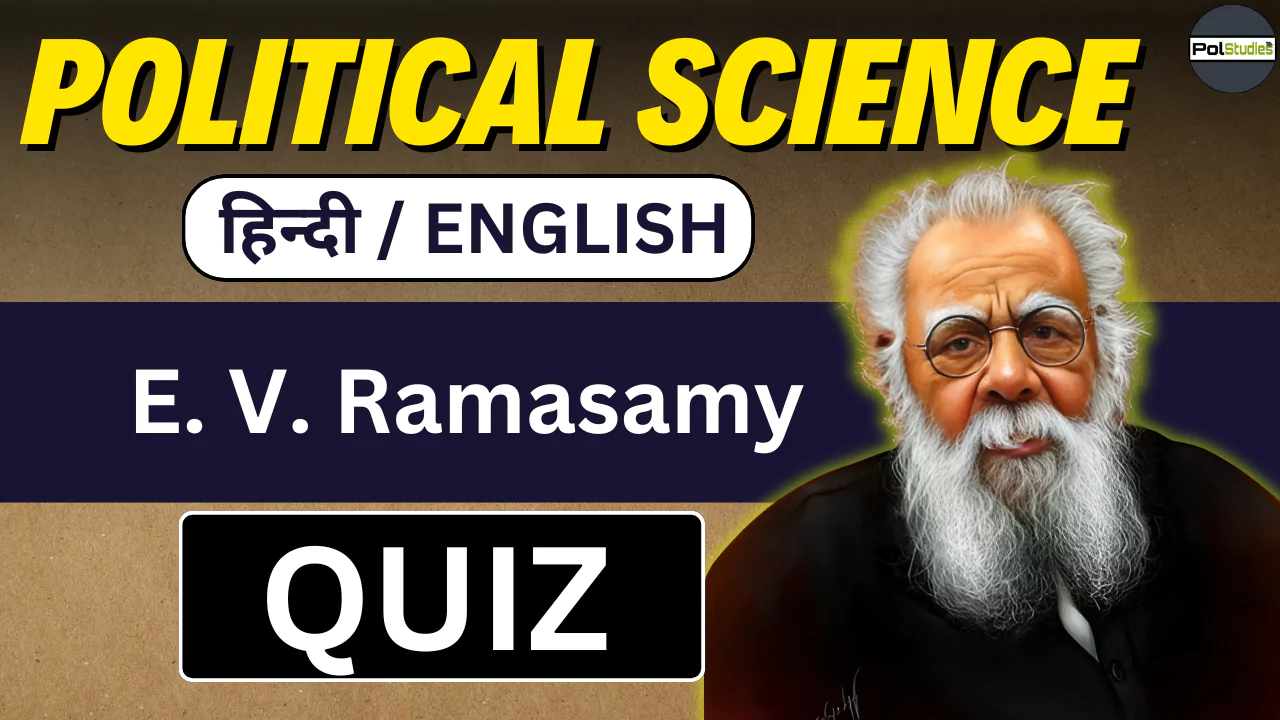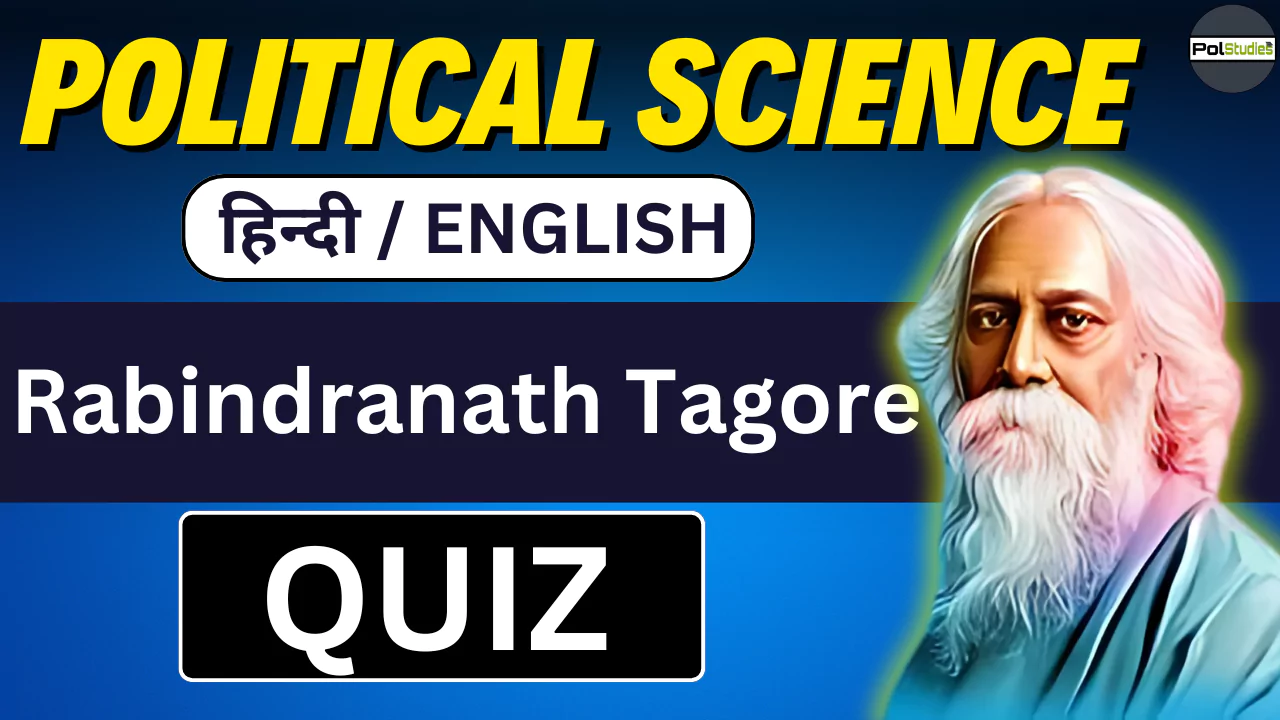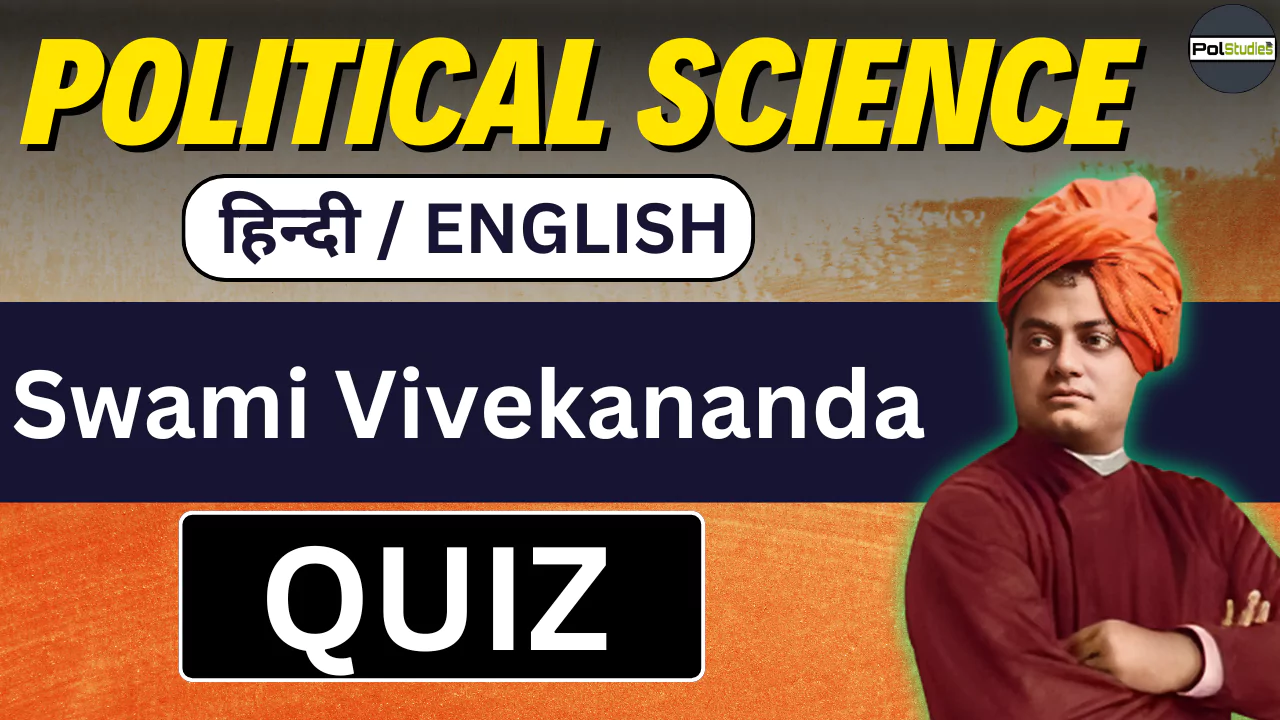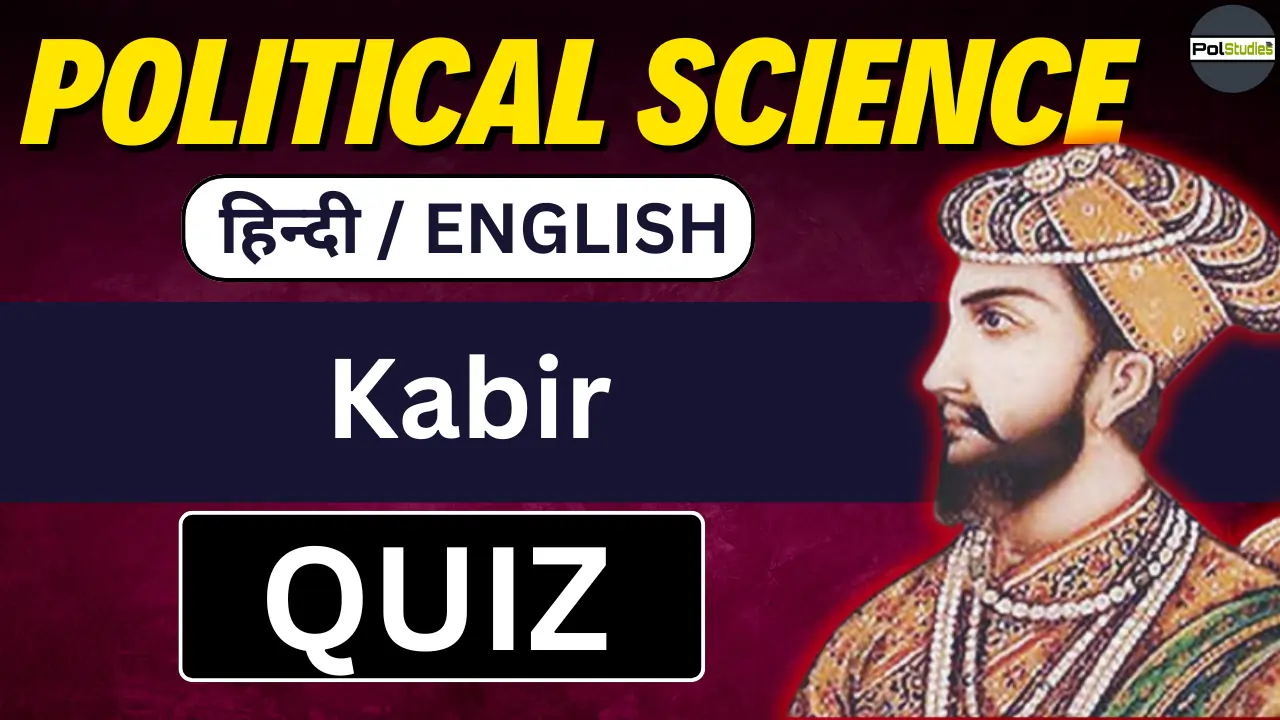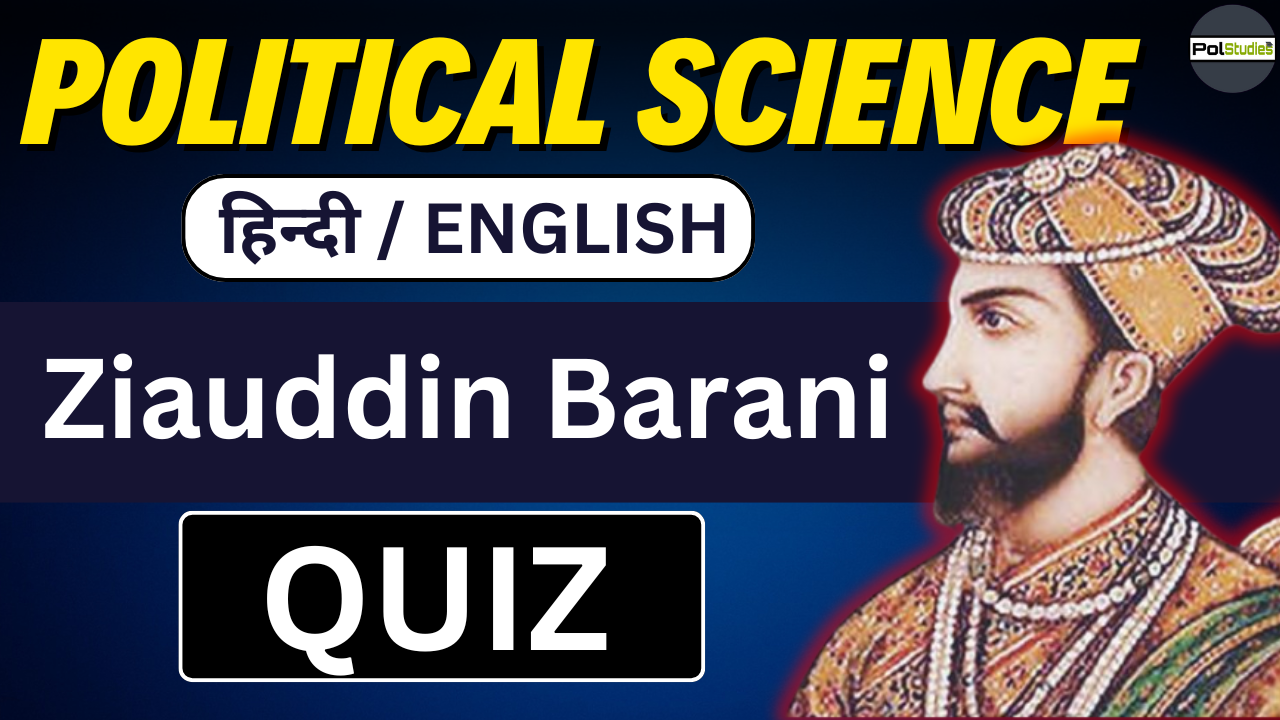Quiz Portal
Explore our expertly crafted Political Science quizzes, designed to help you succeed in exams like UGC NET, CUET-PG, Ph.D. entrance, and Assistant Professor recruitment.
Indian Political Thought
E. V. Ramasamy Major Theories | Notable Works | UGC
1. Introduction: Erode Venkata Ramasamy (1879–1973), popularly known as Periyar, was a rationalist thinker, social reformer, and anti-caste activist from Tamil…
Sri Aurobindo Major Theories | Notable Works | UGC NET
1. Introduction: Sri Aurobindo (1872–1950), born Aurobindo Ghose, was an Indian nationalist, philosopher, yogi, poet, and spiritual reformer. Initially a revolutionary…
Rabindranath Tagore Major Theories | Notable Works | UGC NET
1. Introduction: Rabindranath Tagore (1861–1941) was a Bengali polymath—a poet, philosopher, educationist, and political thinker. He was the first non-European to…
Swami Vivekananda Major Theories | Notable Works | UGC NET
1. Introduction: Swami Vivekananda (1863–1902), born Narendranath Datta in Kolkata, was a Hindu monk, philosopher, nationalist, and spiritual leader. He was…
Kabir Major Theories | Notable Works | UGC NET |
1. Introduction: Kabir (c. 15th century) was one of the most influential poet-saints and social reformers of the Bhakti movement in…
Ziauddin Barani Major Theories | Notable Works | UGC NET
1. Introduction: Ziauddin Barani (1285–1357 CE approx.) was a 14th-century Indian Muslim political thinker, historian, and courtier during the Delhi Sultanate…
E. V. Ramasamy Major Theories | Notable Works | UGC
1. Introduction: Erode Venkata Ramasamy (1879–1973), popularly known as Periyar, was a rationalist thinker, social reformer, and anti-caste activist from Tamil Nadu.He was the founder of the Self-Respect Movement and the Dravidar Kazhagam, and one of the most radical voices against Brahminical dominance, caste hierarchy, patriarchy, and religious orthodoxy. Periyar rejected both Hindu religious doctrines and North Indian political dominance, advocating for…
Sri Aurobindo Major Theories | Notable Works | UGC NET
1. Introduction: Sri Aurobindo (1872–1950), born Aurobindo Ghose, was an Indian nationalist, philosopher, yogi, poet, and spiritual reformer. Initially a revolutionary leader in the Indian freedom struggle, he later became a spiritual thinker, settling in Pondicherry, where he founded the Aurobindo Ashram. Educated in England, he returned to India deeply influenced by Western liberal and romantic traditions, but ultimately sought to revive…
Rabindranath Tagore Major Theories | Notable Works | UGC NET
1. Introduction: Rabindranath Tagore (1861–1941) was a Bengali polymath—a poet, philosopher, educationist, and political thinker. He was the first non-European to win the Nobel Prize for Literature in 1913 for his book Gitanjali. He was born in Kolkata into an elite and progressive family. Tagore played a critical role in shaping modern Indian identity, especially through his philosophy of humanism, universalism, and cultural…
Swami Vivekananda Major Theories | Notable Works | UGC NET
1. Introduction: Swami Vivekananda (1863–1902), born Narendranath Datta in Kolkata, was a Hindu monk, philosopher, nationalist, and spiritual leader. He was the chief disciple of Sri Ramakrishna Paramahamsa and the founder of the Ramakrishna Mission. Vivekananda is best known for introducing Vedanta and Yoga to the West and for his historic speech at the Parliament of the World’s Religions (Chicago, 1893). His message…
Kabir Major Theories | Notable Works | UGC NET |
1. Introduction: Kabir (c. 15th century) was one of the most influential poet-saints and social reformers of the Bhakti movement in India. He is often considered a bridge between Hinduism and Islam, as his teachings transcended both religious boundaries. He was born in Varanasi, and although his exact background is debated, most sources suggest he was raised by a Muslim weaver family. He…
Ziauddin Barani Major Theories | Notable Works | UGC NET
1. Introduction: Ziauddin Barani (1285–1357 CE approx.) was a 14th-century Indian Muslim political thinker, historian, and courtier during the Delhi Sultanate period, particularly in the reigns of Sultan Muhammad bin Tughlaq and Firuz Shah Tughlaq. He is best known for his political writings in Persian, which provide valuable insights into the ideology of kingship, governance, and Islamic statecraft in medieval India. He…


